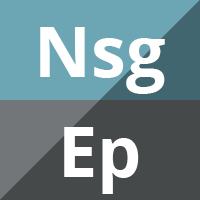
Psychological treatments for people with epilepsy
Abstract Background Given the significant impact epilepsy may have on the health‐related quality of life (HRQOL) of individuals with epilepsy and their families, there is increasing clinical interest in evidence‐based psychological treatments, aimed at enhancing psychological and seizure‐related outcomes for this group. This is an updated version of the original Cochrane Review published in Issue 10, […]

Vigabatrin for refractory partial epilepsy
Abstract Background This is an updated version of the original Cochrane Review published in 2008 and updated in 2013. Epilepsy is a common neurological condition which affects up to 1% of the population. Approximately 30% of people with epilepsy do not respond to treatment with currently available drugs. The majority of these people have focal […]

Zonisamide add-on for drug-resistant partial epilepsy
Abstract Background The majority of people with epilepsy have a good prognosis, and their seizures can be well controlled with the use of a single antiepileptic agent, but up to 30% develop dug‐resistant epilepsy, especially those with focal seizures. In this review, we summarised the evidence from randomised controlled trials (RCT) of zonisamide, used as […]

Lamotrigine add‐on therapy for drug‐resistant generalised tonic‐clonic seizures
Abstract Background This is an update of the Cochrane Review first published in 2010; it includes one additional study. Primary generalised tonic‐clonic seizures are a type of generalised seizure. Other types of seizures include: absence, myoclonic, and atonic seizures. Effective control of tonic‐clonic seizures reduces the risk of injury and death, and improves quality of […]

Stiripentol add‐on therapy for drug‐resistant focal epilepsy
Abstract Background This is an updated version of the Cochrane Review first published in 2014, and last updated in 2018. For nearly 30% of people with epilepsy, seizures are not controlled by current treatments. Stiripentol is an antiepileptic drug (AED) that was developed in France and was approved by the European Medicines Agency (EMA) in […]

Antiepileptic drugs as prophylaxis for postcraniotomy seizures
Abstract Background This is an updated version of the Cochrane Review previously published in 2018. The incidence of seizures following supratentorial craniotomy for non‐traumatic pathology has been estimated to be between 15% to 20%; however, the risk of experiencing a seizure appears to vary from 3% to 92% over a five‐year period. Postoperative seizures can […]

Clonazepam add‐on therapy for drug‐resistant epilepsy
Abstract Background This is an updated version of the original Cochrane Review published in 2018, Issue 5. Epilepsy affects over 70 million people worldwide, and nearly a quarter of patients with seizures have drug‐resistant epilepsy. People with drug‐resistant epilepsy have increased risks of premature death, injuries, psychosocial dysfunction, and a reduced quality of life. Objectives […]

EEG for children with complex febrile seizures
Abstract Background Febrile seizures can be classified as simple or complex. Complex febrile seizures are associated with fever that lasts longer than 15 minutes, occur more than once within 24 hours, and are confined to one side of the child’s body. It is common in some countries for doctors to recommend an electroencephalograph (EEG) for […]

Treatments for the prevention of Sudden Unexpected Death in Epilepsy (SUDEP)
Abstract Background This is an updated version of the original Cochrane Review, published in 2016, Issue 7. Sudden Unexpected Death in Epilepsy (SUDEP) is defined as sudden, unexpected, witnessed or unwitnessed, non‐traumatic or non‐drowning death of people with epilepsy, with or without evidence of a seizure, excluding documented status epilepticus and in whom postmortem examination […]

Lamotrigine add‐on therapy for drug‐resistant focal epilepsy
Abstract Background This is an updated version of the Cochrane Review previously published in 2016. Epilepsy is a common neurological disorder, affecting 0.5% to 1% of the population. For nearly 30% of these people, their epilepsy is resistant to currently available drugs. Pharmacological treatment remains the first choice to control epilepsy. Lamotrigine is one of […]

